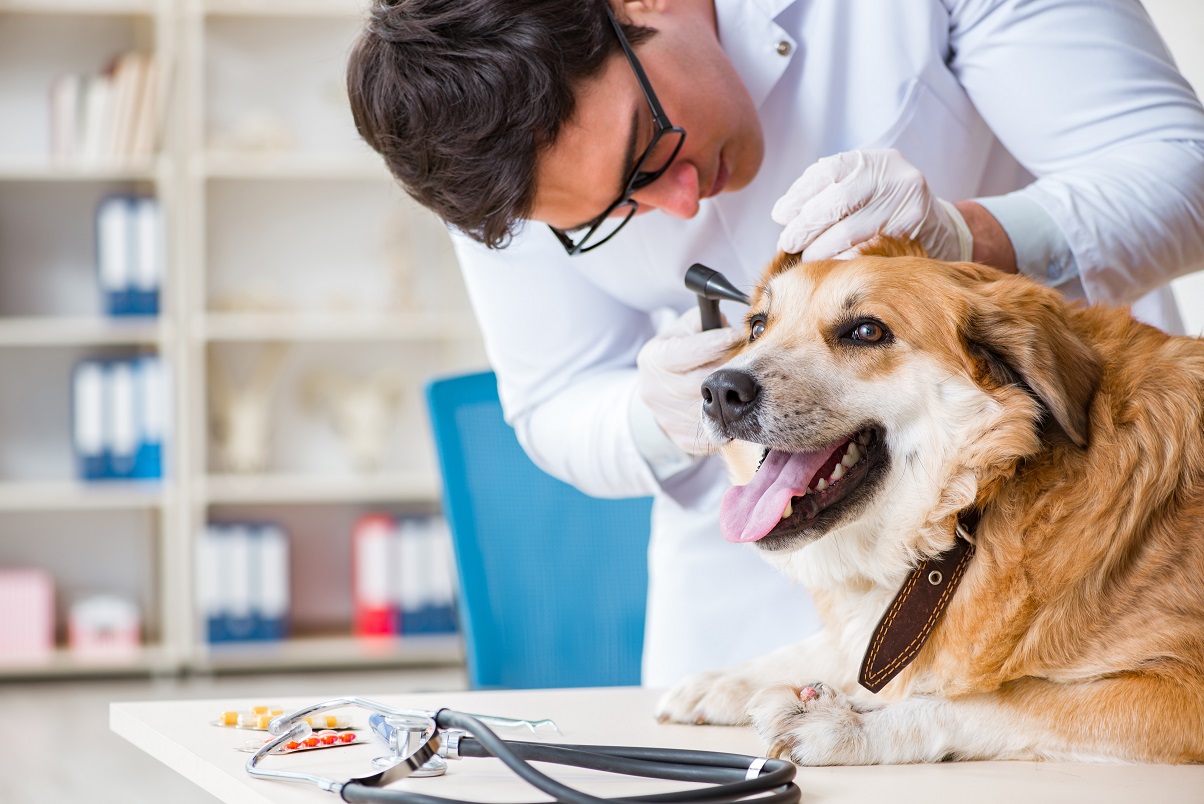As a caring and responsible pet owner, everyone’s biggest wish is to see their dog live a long, happy, and healthy life. That means more walks, cuddles, playful fetch games, and all those little joyful moments that make life with dogs so special. But keeping them healthy isn’t just about rushing to the vet when something goes wrong; it’s about preventive care.
Preventive care plays a vital role in your dog’s overall well-being and forms the foundation of responsible pet ownership. Regular wellness exams help catch potential health issues early, ensuring your furry companion stays active, comfortable, and full of life.
If you want to keep your furry friends in great shape, you should regularly bring them to the vet for checkups and wellness exams.
How often should you take your dogs to the vet?
Generally, you should take your dogs to the vet at least once a year for a complete medical checkup. However, this may vary depending on the following factors: your dog’s age, current health conditions, and lifestyle.
In this article, you’ll find out how often you should bring your canine companions to the vet based on their age. If you’re looking for a trusted veterinarian in New York City, you may visit the Bond Vet clinic in Williamsburg, Brooklyn, or other similar clinics in your area.
Table of Contents
How Often Should You Take Your Puppy to the Vet?
Puppies require more visits to the vet than an adult dog, especially during their first year of life. You want to ensure that your little furry angels complete all the checkups advised by their vet.
During these vet visits, you’ll learn more about their health, growth, nutrition, behavior, training, diseases (if there are any), and socialization. Knowing these critical aspects can help your pups grow stronger, livelier, and healthier.
To get your puppies started, your veterinarian will administer all the necessary vaccines. These core vaccines will help boost their immune system and prevent contagious dog ailments, such as parvovirus, distemper, parainfluenza, kennel cough, and hepatitis.
After the initial visit, schedule regular vet appointments every four weeks for booster vaccinations. This routine continues until your puppy is about 16 weeks old (around four months). Once they’ve completed their core vaccines, your vet will administer the rabies vaccine, an essential step in protecting your puppy’s long-term health and safety.
Depending on your puppy’s health, environment, and lifestyle, your veterinarian may recommend additional (non-core) vaccines to protect against diseases like Bordetella (kennel cough), Lyme disease, and canine influenza. Always keep an eye on your pup’s vaccination record or booklet to ensure everything is up to date. Maintaining accurate records helps prevent both missed vaccinations and unnecessary repeat doses, keeping your puppy safe and properly protected.
During these visits, the vet may also recommend other procedures for additional protection against parasites. These include deworming, worm testing, flea and tick prevention, and heartworm prevention.
Pro Tip: Always get a puppy from an ethical and well-reputed breeder to avoid any genetic diseases in your puppies. Getting a puppy from a backyard breeder or a puppy mill may result in a sick dog with health-related complexities.
How Many Times Should an Adult Dog Visit the Vet
When dogs become a year older, they’ll be considered adults (one to seven years old). In most cases, adult dogs require checkups at least once a year. This is enough for canines that are healthy, don’t require frequent booster shots, and don’t have health conditions to address.
During these visits, your dog will undergo a physical exam. The vet will examine them thoroughly, from the tip of their nose to their tail. This also includes checking their weight, taking their vitals, listening to their heartbeat, and examining their dental, joint, and bone health.
The vet may also recommend testing the feces of your dogs to confirm the presence of intestinal parasites (e.g., roundworms, whipworms, and hookworms). These parasites are harmful to humans and other animals, so make sure to have your dog’s poop checked at least once a year.
Aside from that, the vet may also give your dogs additional booster shots of the vaccines they completed when they were still puppies. These are usually given when they are one year old. After that, boosters will be given every three years.
If you’re planning to leave your dogs in a kennel facility or dog boarding house, your dogs might need additional vaccines, particularly the kennel cough vaccine. This is crucial to ensure that the dogs in the boarding facility won’t get sick.
How Often Should a Senior Dog Visit the Vet?
When your dogs turn eight years old, they’ll be considered senior. Unlike adult dogs, seniors require at least two vet visits yearly or maybe more. This is because they’re prone to health issues and injuries, and visiting the vet biannually may help prevent any problems from occurring.
During these visits, your dogs will undergo a thorough physical exam, focusing on areas that require more attention. For example, the vet may check your dog’s teeth and advise additional dental care routines to prevent tooth problems.
The vet will check your dog’s weight and observe their movements to identify potential joint pain and other concerns regarding mobility. Additionally, you can schedule your dog for annual urine and blood tests to check its internal organs.
Certain breeds may have some additional lab tests or treatments, such as brachycephalic breeds may have breathing issues that require additional attention.
Final Words
Regularly visiting the vet helps your dog become stronger, happier, and live longer. During these visits, the vet may administer vaccines, conduct physical exams, and run other tests to ensure your dog’s safety throughout their life.
If you can’t remember when was the last time your dog visited the vet, this is probably the best time to do so to address and prevent possible health conditions.










